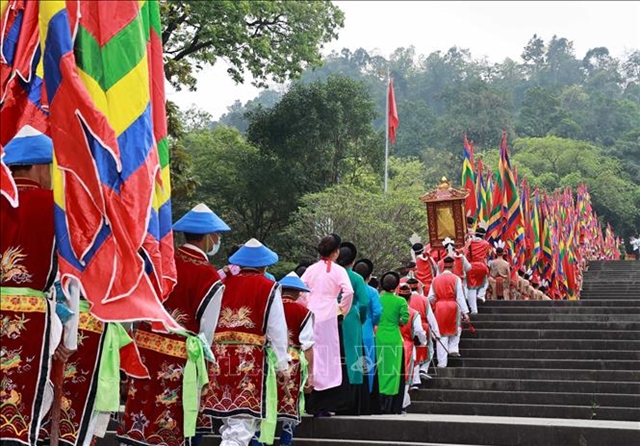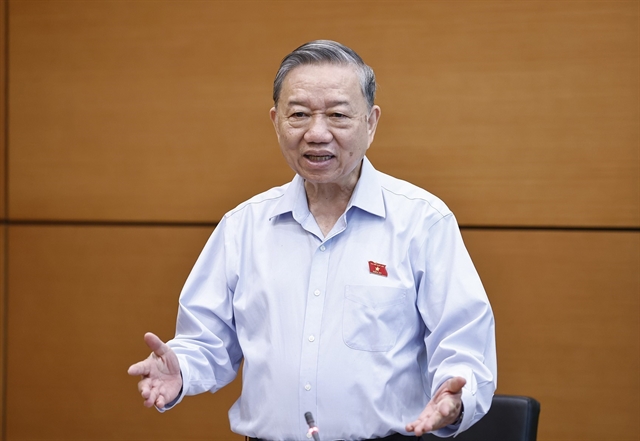 Politics & Law
Politics & Law
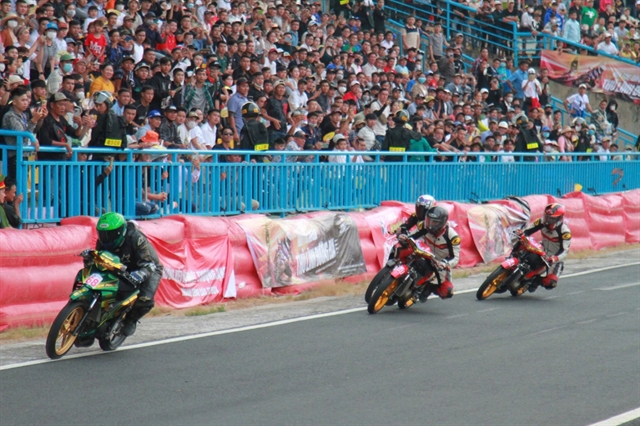
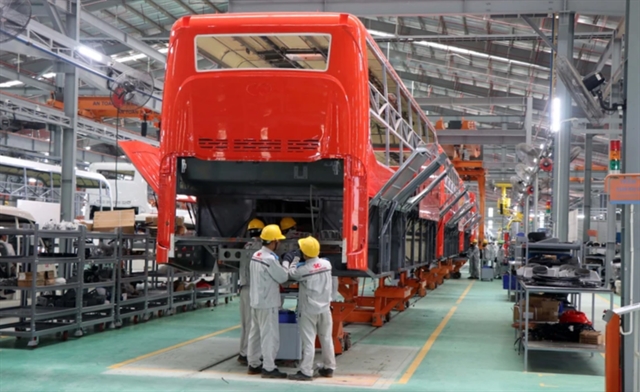 |
| Automobile manufacturing at Kim Long Motor Huế Automobile Manufacturing and Assembly Industrial Park. — VNA/VNS Photo |
THỪA THIÊN-HUẾ – Nestled in a strategically significant position in the central key economic zone, the central province of Thừa Thiên-Huế serves as a vital gateway to the sea of the East-West Economic Corridor linking northern Thailand, southern Laos and central Việt Nam.
With concerted efforts to enhance its transportation infrastructure, streamline administrative procedures, and improve workforce training quality in recent years, this province is rapidly emerging as an attractive destination for both domestic and foreign investors.
Aiming for the status of a centrally-run city, Thừa Thiên-Huế has been launching various key transportation projects that promise to transform its connectivity. In 2023, the T2 passenger terminal at Phú Bài International Airport, with a nearly VNĐ2.3 trillion (US$92 million) investment, officially opened its door, boasting a designed capacity of five million passengers per year.
By early 2025, two major projects – a coastal road and the Thuận An sea crossing bridge, spanning nearly eight kilometres and costing VNĐ2.4 trillion, and the Nguyễn Hoàng road and Hương River bridge, part of Ring Road 3 with an initial investment of more than VNĐ1.86 trillion – are set to complete.
Additionally, the second phase of a wave-dissipation dyke project at Chân Mây deep-water port, with a total investment of VNĐ757 billion, is underway. The province is courting investments in infrastructure for berths 4, 5, and 6 along with storage facilities, to establish a logistics centre that will improve service quality and competitiveness of this seaport.
Trần Công Thích Vương, deputy director of the provincial Department of Planning and Investment, underlined the province’s commitment to pooling investments in hi-tech industries, electronics, semiconductor, telecommunications equipment, and new material industries. Priority will be given to developing certain sectors such as export-oriented consumer goods, beverages and metallurgy linked to the seaport, electricity production from green energy sources, all aimed at fostering a green urban environment and sustainable industrial zones.
At present, Thừa Thiên-Huế is home to six industrial parks, hosting 109 active projects and 48 projects under development, along with several small industrial clusters. The Chân Mây-Lăng Cô Economic Zone, with a “prime” geographic location connecting to Đà Nẵng via the Hải Vân road tunnel, a natural deep-sea port, a system of lagoons and stunning coastal bays renowned worldwide, is a key asset.
Covering about 27,108 hectares, the economic zone has five main functional areas, including a port area, an industrial zone, a non-tariff area, an urban area, and a tourism zone. To date, it has basically completed primary transportation routes and has a wastewater treatment system with a capacity of 10,000 cb.m per day, along with a solid waste treatment facility.
Nguyễn Văn Phương, chair of the provincial People's Committee, made it clear that the province will not endorse environmentally polluting industries and projects reliant on unskilled labour. Instead, the focus is on sustainable development scenarios targeting hi-tech manufacturing.
"By investing in infrastructure and creating a pro-business environment, we aim to draw key players capable of leading and driving the development of supporting industries in designated areas," he said.
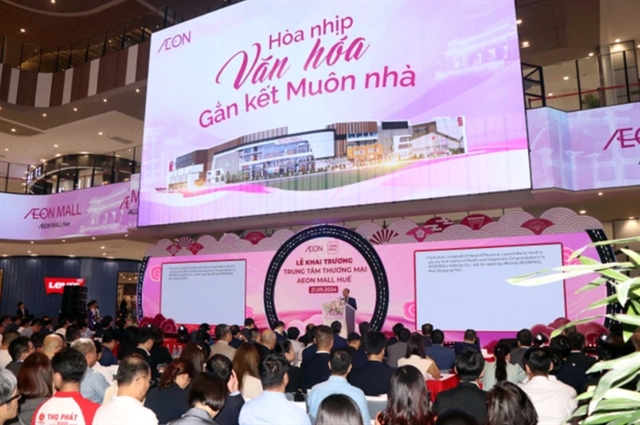 |
| The opening ceremony of the AEON MALL Huế Trade Centre in September. — VNA/VNS Photo |
A recent highlight in this development plan is the groundbreaking of the Kim Long Huế engine manufacturing and assembling plant at the Chân Mây-Lăng Cô Economic Zone. This project, part of the Kim Long Motors Huế Industrial Park, spans 600 hectares and represents a total investment of $260 million. Scheduled to become operational in the second quarter of 2025, the plant will feature an impressive automation level of up to 90 per cent, marking a major leap forward for local industry.
The Kim Long Motor Huế Industrial Park – a key project has basically completed its first phase. Since February this year, the Kim Long Motor Huế JSC has produced sleeper buses, seated buses, city buses, and minibusses. Building on initial successes, the investor is preparing documentation to increase its total investment capital to approximately VNĐ21 trillion ($830.04 million).
According to Lý Quốc Việt, permanent deputy general director of the company, the decision to invest in a large-scale automotive manufacturing and assembling project in Thừa Thiên-Huế reflects Kim Long Motor's aspiration to establish a foundation for local high-tech industrial development.
The company aims to bring new industrial vibrancy to the land of the ancient capital, which is known for its long-standing history and culture. The industrial park is envisioned to become a leading regional centre for vehicle and auto parts production, targeting a localisation rate exceeding 90 per cent by the second quarter of 2026.
Thừa Thiên-Huế is one of Việt Nam's major tourism hubs, featuring the ancient capital of Hue, rich traditional cultural identities and six UNESCO-recognised cultural heritage sites. The province boasts stunning natural landscapes, including the Tam Giang-Cầu Hai brackish-water lagoon system – the largest of its kind in Southeast Asia with nearly 22,000 ha of water surface, Bạch Mã National Park, Lập An Lagoon, and Lăng Cô Bay – a member of the Club of the Most Beautiful Bays of the World.
Each year, millions of travellers, both domestic and international, flock to the province for sightseeing and relaxation. As the province actively seeks tourism investments, it stands on the brink of unlocking a wealth of untapped potential.
Recently, the $169.67-million Aeon Mall Huế, which is the largest retail and service centre by the Japanese giant Aeon Mall in central Việt Nam to date, officially opened, catering to the shopping needs of locals and tourists alike. — VNA/VNS


.jpg)
